9 start with R start with R
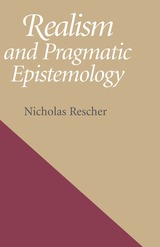
An examination of philosophical realism from the standpoint of pragmatic epistemology, this book addresses the core idea of Rescher's work in epistemology: that functional and pragmatic concerns exert a controlling influence on the conduct of rational inquiry and on the ways in which we can and should regard its products.
Pragmatism is widely regarded as a philosophical approach that stands at odds with realism, but Rescher takes a very different approach. He views pragmatism as a realistic position that can be developed from a pragmatic point of view, and utilizes a number of case studies to augment his position. Throughout, he shows how the pragmatic and purposive setting of our putative knowledge of the real world proves to be crucial for the constituting and also for the constitution of our knowledge.
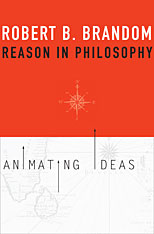
Transcendentalism never came to an end in America. It just went underground for a stretch, but is back in full force in Robert Brandom’s new book. Brandom takes up Kant and Hegel and explores their contemporary significance as if little time had expired since intellectuals gathered around Emerson in Concord to discuss reason and idealism, selves, freedom, and community. Brandom’s discussion belongs to a venerable tradition that distinguishes us as rational animals, and philosophy by its concern to understand, articulate, and explain the notion of reason that is thereby cast in that crucial demarcating role.
An emphasis on our capacity to reason, rather than merely to represent, has been growing in philosophy over the last thirty years, and Robert Brandom has been at the center of this development. Reason in Philosophy is the first book that gives a succinct overview of his understanding of the role of reason as the structure at once of our minds and our meanings—what constitutes us as free, responsible agents. The job of philosophy is to introduce concepts and develop expressive tools for expanding our self-consciousness as sapients: explicit awareness of our discursive activity of thinking and acting, in the sciences, politics, and the arts. This is a paradigmatic work of contemporary philosophy.

Is unethical conduct necessarily irrational? Answering this question requires giving an account of practical reason, of practical good, and of the source or point of wrongdoing. By the time most contemporary philosophers have done the first two, they have lost sight of the third, chalking up bad action to rashness, weakness of will, or ignorance. In this book, Candace Vogler does all three, taking as her guides scholars who contemplated why some people perform evil deeds. In doing so, she sets out to at once engage and redirect contemporary debates about ethics, practical reason, and normativity.
Staged as a limited defense of a standard view of practical reason (an ancestor of contemporary instrumentalist views), Vogler's essay develops Aquinas's remark about three ways an action might be desirable into an exhaustive system for categorizing reasons for acting. Drawing on Elizabeth Anscombe's pioneering work on intention, Vogler argues that one sort (means/end or calculative reasons for acting) sets the terms for all sound work on practical rationality.
She takes up Aquinas's work on evil throughout, arguing that he provides us with a systematic theory of immorality that takes seriously the goods at issue in wrongdoing and the reasons for unethical conduct. Vogler argues that, shorn of its theological context, this theory leaves us with no systematic, uncontroversial way of arguing that wrongdoing is necessarily contrary to reason.
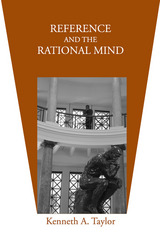
To demonstrate his view, Kenneth A. Taylor offers original and provocative accounts of a wide variety of semantic, pragmatic, and psychological phenomena, such as empty names, propositional attitude contexts, the nature of concepts, and the ultimate source and nature of normativity.
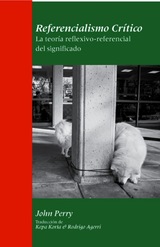
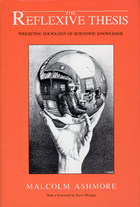
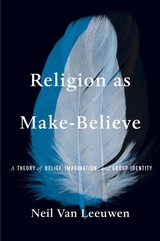
To understand the nature of religious belief, we must look at how our minds process the world of imagination and make-believe.
We often assume that religious beliefs are no different in kind from ordinary factual beliefs—that believing in the existence of God or of supernatural entities that hear our prayers is akin to believing that May comes before June. Neil Van Leeuwen shows that, in fact, these two forms of belief are strikingly different. Our brains do not process religious beliefs like they do beliefs concerning mundane reality; instead, empirical findings show that religious beliefs function like the imaginings that guide make-believe play.
Van Leeuwen argues that religious belief—which he terms religious “credence”—is best understood as a form of imagination that people use to define the identity of their group and express the values they hold sacred. When a person pretends, they navigate the world by consulting two maps: the first represents mundane reality, and the second superimposes the features of the imagined world atop the first. Drawing on psychological, linguistic, and anthropological evidence, Van Leeuwen posits that religious communities operate in much the same way, consulting a factual-belief map that represents ordinary objects and events and a religious-credence map that accords these objects and events imagined sacred and supernatural significance.
It is hardly controversial to suggest that religion has a social function, but Religion as Make-Believe breaks new ground by theorizing the underlying cognitive mechanisms. Once we recognize that our minds process factual and religious beliefs in fundamentally different ways, we can gain deeper understanding of the complex individual and group psychology of religious faith.

In diverse essays the authors provide fascinating studies of objectivity in such areas as anthropological research, corporate and governmental bureaucracies, legal discourse, photography, and the study and practice of the natural sciences. Taken together, Megill argues, this volume calls for developing a notion of "objectivities." The absolute sense of objectivity--that is, objectivity as a "God's eye view"--must be supplemented, and in part supplanted, by disciplinary, procedural, and dialectical senses of objectivity. This book will be of great interest to a broad range of scholars as it presents current thinking on a topic of fundamental concern across the disciplines in the humanities and social sciences.
Contributors. Barry Barnes, Dagmar Barnouw, Lorraine Code, Lorraine Daston, Johannes Fabian, Kenneth J. Gergen, Mary E. Hawkesworth, Barbara Herrnstein Smith, Evelyn Fox Keller, George Levine, Allan Megill, Peter Miller, Andy Pickering, Theodore M. Porter
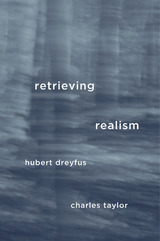
“A picture held us captive,” writes Wittgenstein in the Philosophical Investigations, describing the powerful image of mind that underlies the modern epistemological tradition from Descartes onward. Retrieving Realism offers a radical critique of the Cartesian epistemic picture that has captivated philosophy for too long and restores a realist view affirming our direct access to the everyday world and to the physical universe.
According to Descartes, knowledge exists in the form of ideas in the mind that purportedly represent the world. This “mediational” epistemology—internal ideas mediating external reality—continues to exert a grip on Western thought, and even philosophers such as Quine, Rorty, and Davidson who have claimed to refute Descartes remain imprisoned within its regime. As Hubert Dreyfus and Charles Taylor show, knowledge consists of much more than the explicit representations we formulate. We gain knowledge of the world through bodily engagement with it—by handling things, moving among them, responding to them—and these forms of knowing cannot be understood in mediational terms. Dreyfus and Taylor also contest Descartes’s privileging of the individual mind, arguing that much of our understanding of the world is necessarily shared.
Once we deconstruct Cartesian mediationalism, the problems that Hume, Kant, and many of our contemporaries still struggle with—trying to prove the existence of objects beyond our representations—fall away, as does the motivation for nonrealist doctrines. We can then begin to describe the background everyday world we are absorbed in and the universe of natural kinds discovered by science.
READERS
Browse our collection.
PUBLISHERS
See BiblioVault's publisher services.
STUDENT SERVICES
Files for college accessibility offices.
UChicago Accessibility Resources
home | accessibility | search | about | contact us
BiblioVault ® 2001 - 2024
The University of Chicago Press









